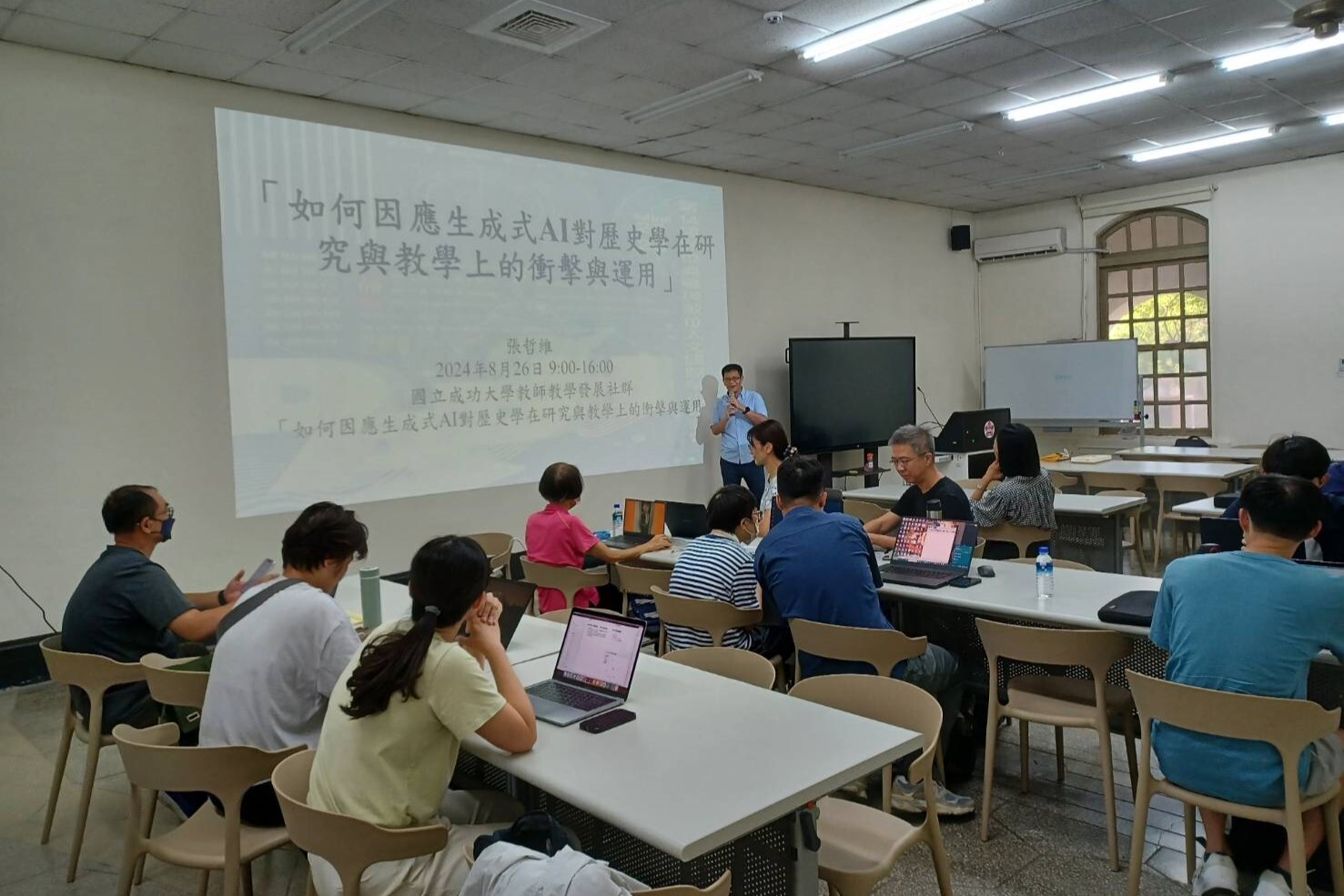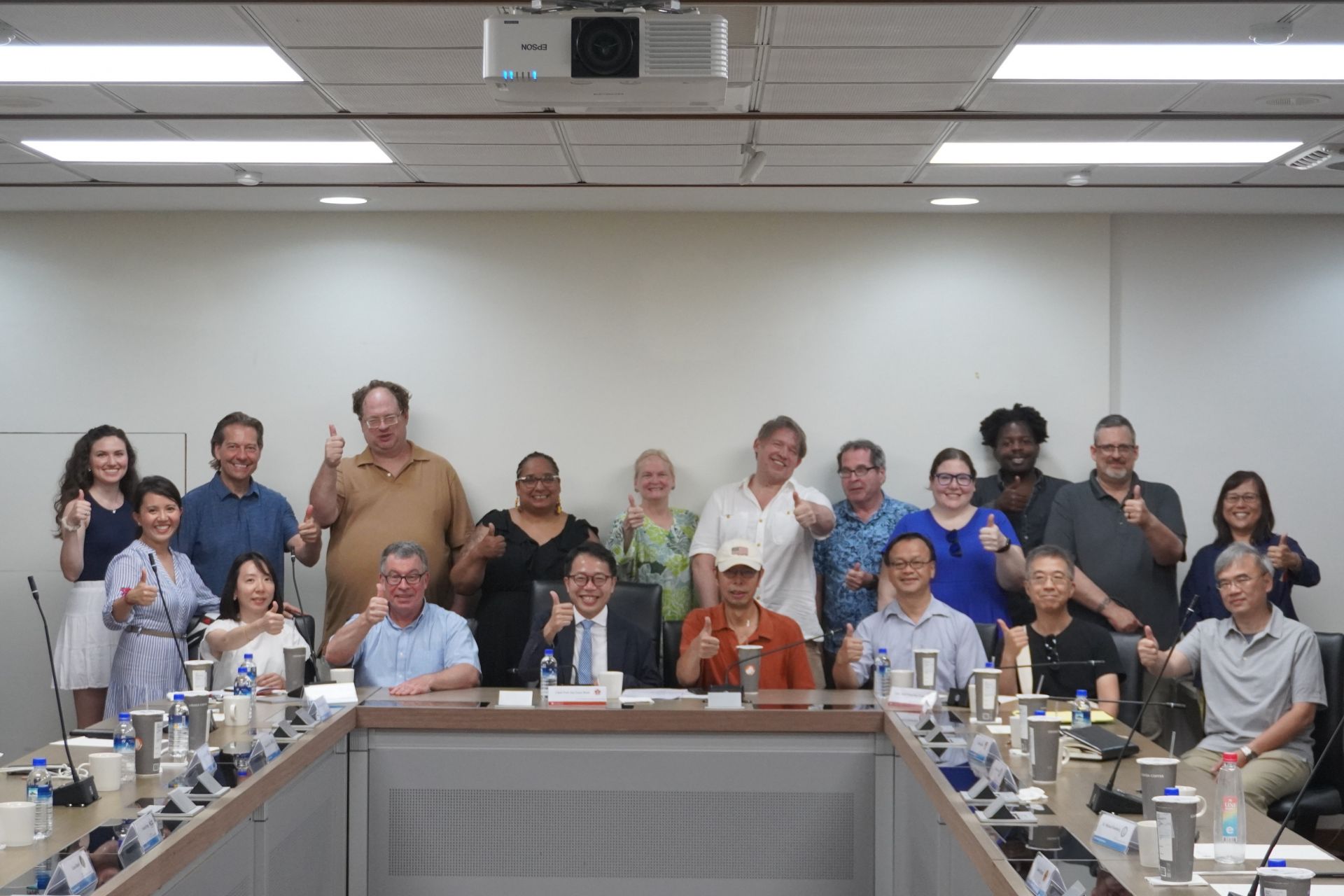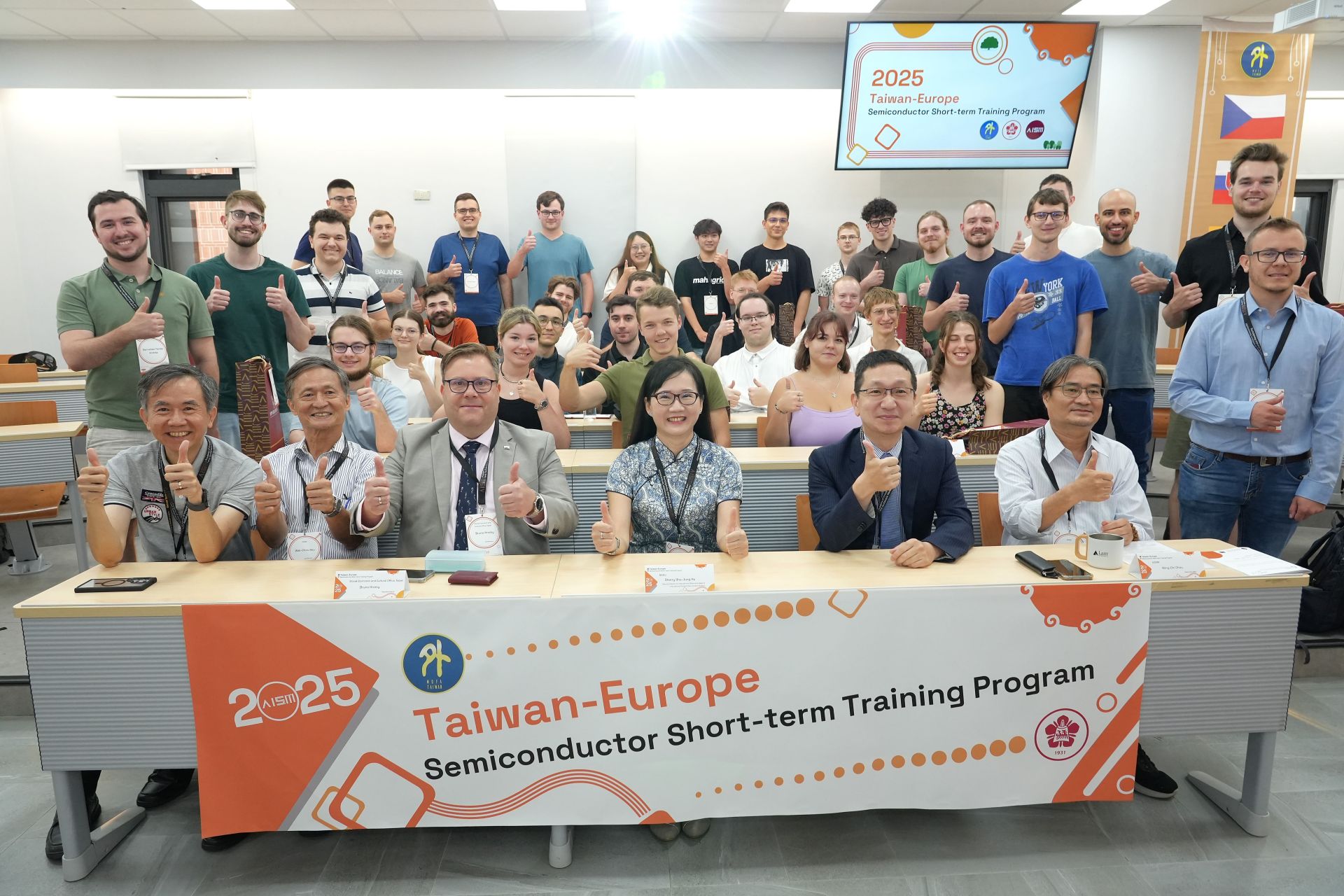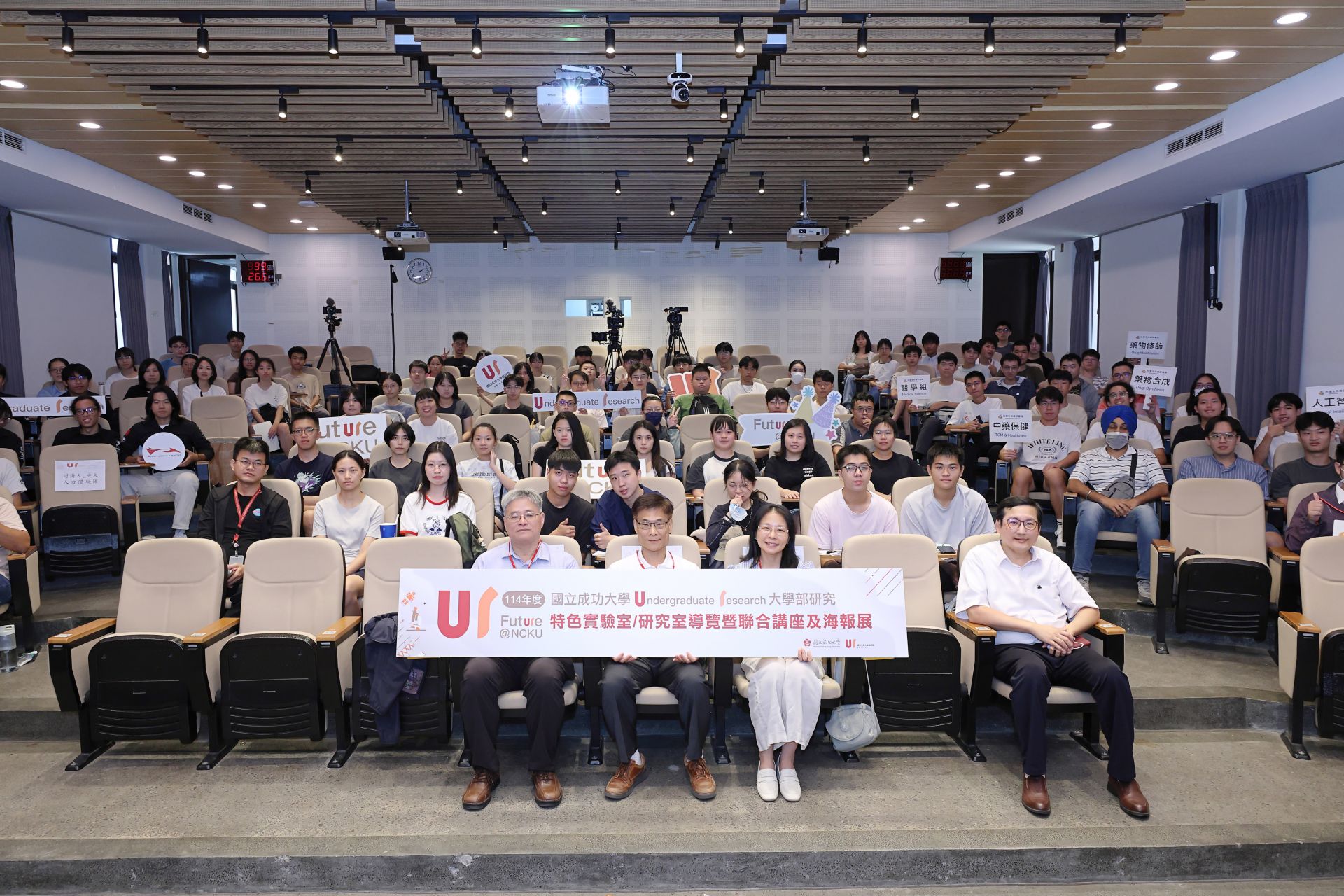SDG4
"Mastering Tools, Not Being Mastered" — NCKU History Department Takes a Human-Centered Approach to AI Era Challenges
Generative Artificial Intelligence (AI) has rapidly emerged, and National Cheng Kung University's (NCKU) Department of History held a series of teacher development activities from August 26 to 30, focusing on "Responding to the Impact and Application of Generative AI in Historical Research and Teaching." The event, conducted at the Department of History building, aimed to deepen understanding of AI through expert lectures and practical exercises. The goal is for teachers to actively utilize and reflect on AI in future teaching and research, maintaining a "human-centered" approach.
The Department of History highlights that the event not only demonstrates the department’s thoughtful response to the challenges of the AI era but also showcases its calm and open-minded approach to rapidly evolving technological developments. It reflects President Meng-Ru Shen's "Happy Campus" philosophy, emphasizing the importance of human-led AI to ensure that AI truly serves human well-being.
The series of activities, designed and organized by Assistant Professor che-wei Chang, was structured to guide participants through presenting the research logic of humanities on computers. It also explored the nature and development trends of generative AI technology and the future of building humanities teaching and research infrastructure. Through expert talks and hands-on activities, attendees gained a deep understanding of AI technology and its practical applications in humanities research, laying a solid foundation for future teaching.
Assistant Professor Chang revealed that during the planning of the event, former President Huey-Jen Su of the College of Intelligent Computing was commissioned by Vice Dean Ray-Bing Chen to discuss the quality of humanities and social sciences courses. Former President Su, along with teacher Yu-Chen Shu and teaching assistants from the College of Intelligent Computing, participated in the event to observe and understand the specific needs of the humanities disciplines. They plan to provide technical support in the upcoming semester’s "Digital Tools for Historical Methods" course, integrating the latest AI technologies into humanities teaching.
The Department of History believes that through this comprehensive series of activities, participants will be able to "broadly observe and selectively extract" insights and draw from their professional expertise and past course experiences to enrich future teaching. This proactive response to AI challenges is not only an interpretation of humanities spirit but also a way to explore and infuse new vitality into teaching and research amidst the wave of AI technology. It aims to empower students to confidently embrace the challenges of the AI era, ensuring that AI remains a tool for human well-being and achieving harmonious coexistence between humanity and technology, staying true to the essence of "serving the tool, not being served by it."
The Department of History highlights that the event not only demonstrates the department’s thoughtful response to the challenges of the AI era but also showcases its calm and open-minded approach to rapidly evolving technological developments. It reflects President Meng-Ru Shen's "Happy Campus" philosophy, emphasizing the importance of human-led AI to ensure that AI truly serves human well-being.
The series of activities, designed and organized by Assistant Professor che-wei Chang, was structured to guide participants through presenting the research logic of humanities on computers. It also explored the nature and development trends of generative AI technology and the future of building humanities teaching and research infrastructure. Through expert talks and hands-on activities, attendees gained a deep understanding of AI technology and its practical applications in humanities research, laying a solid foundation for future teaching.
Assistant Professor Chang revealed that during the planning of the event, former President Huey-Jen Su of the College of Intelligent Computing was commissioned by Vice Dean Ray-Bing Chen to discuss the quality of humanities and social sciences courses. Former President Su, along with teacher Yu-Chen Shu and teaching assistants from the College of Intelligent Computing, participated in the event to observe and understand the specific needs of the humanities disciplines. They plan to provide technical support in the upcoming semester’s "Digital Tools for Historical Methods" course, integrating the latest AI technologies into humanities teaching.
The Department of History believes that through this comprehensive series of activities, participants will be able to "broadly observe and selectively extract" insights and draw from their professional expertise and past course experiences to enrich future teaching. This proactive response to AI challenges is not only an interpretation of humanities spirit but also a way to explore and infuse new vitality into teaching and research amidst the wave of AI technology. It aims to empower students to confidently embrace the challenges of the AI era, ensuring that AI remains a tool for human well-being and achieving harmonious coexistence between humanity and technology, staying true to the essence of "serving the tool, not being served by it."

Participants attentively listen to enhance their understanding of AI, aiming to apply it from a humanities perspective.

Hands-on practice in the course provides deeper insights into AI.

SDG4NCKU Welcomes Delegation from University of Pittsburgh's Asian Studies Center for Taiwan Cultural Exchange
View more
SDG4NCKU Semiconductor Academy Leads Taiwan-Europe Collaboration — 2025 International Semiconductor Training Program Launched
View more



















